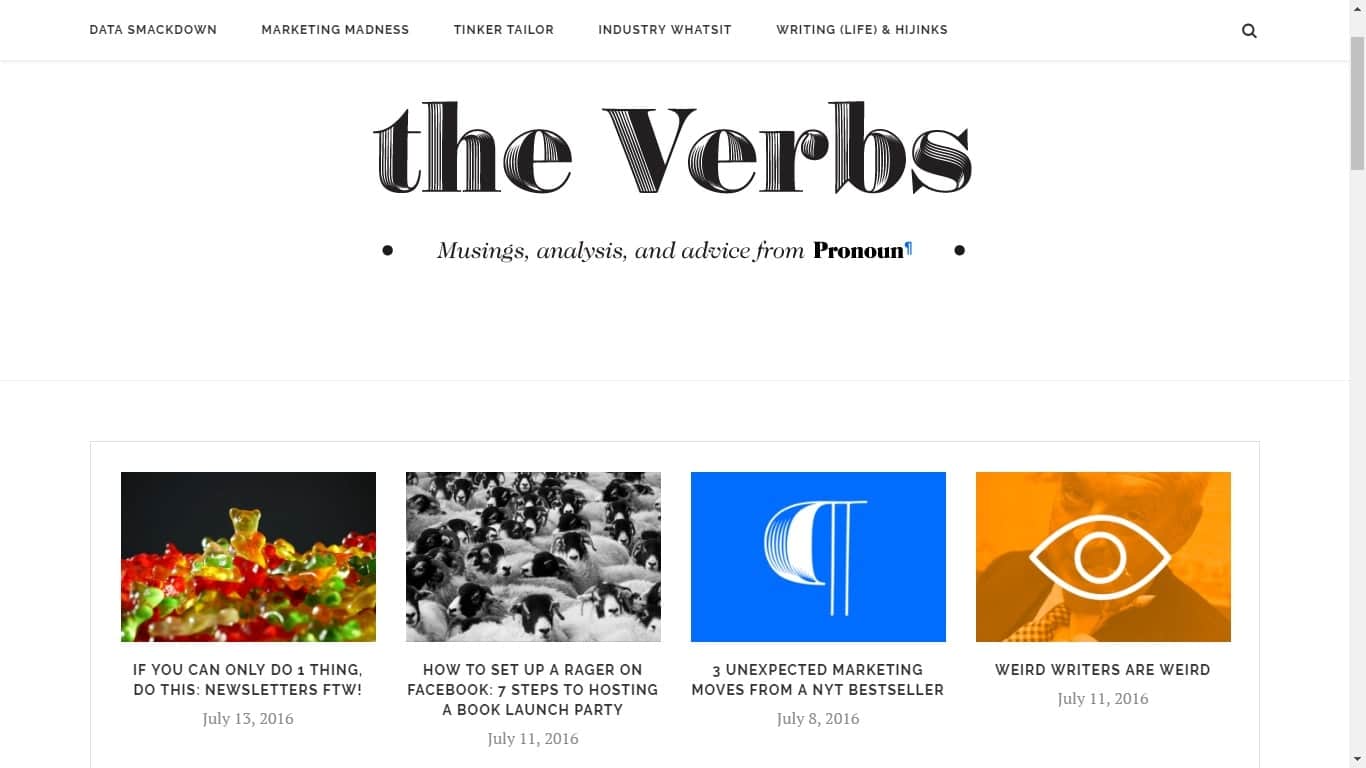No, "Send to Kindle" Won’t Help Vanquish Amazon


Earlier today Joe suggested that publishers can "neutralize" Amazon’s dominance of the ebook market by selling ebooks direct to consumers and using Amazon’s own "Send to Kindle" delivery feature to deliver the ebooks to their Kindle accounts.
Yes, it is as unworkable as it sounds:
Amazon’s Send to Kindle functionality has been around for quite awhile and I believe it’s one of the most underutilized services available to publishers. The Send to Kindle email option lets publishers push non-DRM’d ebooks directly onto a consumer’s Kindle bookshelf. I’m sure it was originally designed for documents other than ebooks but I think it’s time for book publishers to take advantage of it for their ebooks as well.
In addition to simply selling EPUB or PDF ebooks, why not provide readers with the MOBI version and push them directly onto their Kindle devices and apps? All you have to do is ask the reader for their unique Kindle email address and then have them enable inbound emails from your domain. Once that’s in place you’re able to place the ebook on their shelf just like Amazon does.
In other words, Joe wants publishers to use part of Amazon’s own Kindle platform to neutralize Amazon.
Good luck with that.
As much as I like using that email tool and as much as I like the idea of publishers selling direct, this idea is simply not going to work the way Joe wants. Amazon won’t let you use its platform against it, and if it looks like a publisher is succeeding then Amazon will simply take away the email tool.

The thing is, Amazon has some secret policy on publishers and other companies using send-to-kindle. There are Polish booksellers who can still use it (so can NetGalley and sites like StoryBundle), but there’s no way to tell who will get banned next. So far as I can tell, only the more active publishers get the axe, but that is just a guess.
Edit: All we know for certain is that Amazon has a rule they can use against publishers:
No Commercial or Illegal Use
You may not charge directly or indirectly to distribute content via the Service. You may not use the Service to send infringing, unauthorized, or otherwise illegal content.
So this idea, as proposed, is moot. It will not achieve its stated goal.
Next!
images by Inspiyr, hans.gerwitz


Comments
Cómo publicar un libro en Amazon – techleo February 7, 2016 um 2:00 pm
[…] explotan esta herramienta para enviar sus libros, si bien Amazon tiene la opción de seleccionar y prohibir a quien le parezca, como ya está […]
William Ockham February 7, 2016 um 2:16 pm
I am pretty sure Joe never does any research for his blog posts, but he used to work for O’Reilly. How can he write this stuff?
Nate Hoffelder February 7, 2016 um 2:37 pm
I don’t think he does the research either, and I find it really annoying. If Joe had included the caveats in his post (and subtly changed the wording) it would have made for a better post.
Edit: This is not the first time that Joe neglected to do the research.
Chris Bedford February 7, 2016 um 2:17 pm
What you said. But if publishers sell the book with instructions on how the purchaser can load it him/herself, that would bypass Amazon’s ability to ban them.
OK I can see lots of people having lots of trouble using the email facility, simple though it is, because there is no end to the sheer obtuse thickness of users, but it might present a way of, if not taking Amazon down, at least making a small dent in their market share.
More to the point, though, is "why would you want to do that?" Yes I know Amazon has a large market share, but it’s nowhere near a monopoly, and even so – what of it? They aren’t ripping off customers or authors, to my knowledge, or if they are then so are Google Play and iTunes and all the other e-publishers. So what’s the big deal? Or am I being totally naive?
Nate Hoffelder February 7, 2016 um 3:13 pm
Are you asking why sell direct?
The first thing you should know is that the book publishing industry runs on fads, and direct sales is the hot fad again (for the third time).
That said, the general argument in favor of selling direct is that it lets the publisher capture more revenue and collect data on consumer interests. But that also comes with an operating cost which may or may not justify the bother.
I know of several publishers who tried direct sales and decided it wasn’t worth the expense, but YMMV.
Chris Meadows February 7, 2016 um 9:33 pm
Baen used to do that. They even had their web site set up so you could just fill in your email address and click a button to send the book to your Kindle.
And yet, they still ended up needing to make major changes to the way their entire e-book store had worked for over ten years in order to get their e-books into Amazon’s store—because it seemed that people with Kindles just didn’t find that method easy enough, and they kept getting asked why their books "weren’t available on Kindle" even though they were DRM-free and 100% compatible.
And that was 2 1/2 years before Amazon told them to stop offering send-to-Kindle functionality.
It’s always going to be easier to click a single button on Amazon to buy an e-book than it is to buy from a third party and then send-to-Kindle. And it seems there are more than enough Kindle owners to make so that you simply can’t afford not to be on Amazon.
Nate Hoffelder February 7, 2016 um 10:11 pm
And that, in a nutshell, is the second deadly flaw with this idea.
Even if a publisher pulled it off, most customers won’t want to be bothered. We saw that with Baen, and again only a few weeks ago with Pottermore.
Peter Turner February 7, 2016 um 4:05 pm
Nate, are you saying that publishers should try using Amazon’s "Send to Kindle" because Amazon *might* take this tool away? That seems a bit off. Amazon’s reasons for cutting Baen and O’Reily off may because of their past use of this "Send to Kindle" feature. Do you know for sure? Do you know if other publishers are using this feature to promote their content but *haven’t* been cut off?
Nate Hoffelder February 7, 2016 um 4:19 pm
I’m going to assume you forgot the negation here:
and answer what I think you meant.
I’m not saying don’t use it; I’m saying don’t expect it to neutralize Amazon. They won’t let you use their own tool to defeat them, and even proposing the idea is silly.
Mackay Bell February 7, 2016 um 4:12 pm
Colossally terrible advice.
Nate Hoffelder February 7, 2016 um 4:13 pm
Who’s? Mine or Joe’s?
David February 7, 2016 um 4:39 pm
"…lets publishers push non-DRM’d ebooks …."
Now THAT’s an interesting idea: Major publishers pushing non-DRM’e ebooks. SOmehow I have difficulty seeing that.
Mackay Bell February 7, 2016 um 5:15 pm
Joe’s advice is colossally terrible. You’re spot on, Nate.
On Joe’s site in response to your comments he says the good thing about his idea is that it can can be “implemented with minimal development expense.”
Which really shows how clueless he is. Basically it will be easy to create a huge mess. First, tons of customers pushed to buy direct will be very annoyed the minute they find out they have to do three very intrusive steps to get the ebook. (Give up a credit card number for the sale, provide a private Kindle email, and tell Amazon to give blanket permission to have emails sent to their Kindle by a third party). Many sales will simply vanish as customers realize what’s involved. And don’t count on them to then go to Amazon to buy the book. They might go there and buy something else or simply give up on the publisher’s entire library because it seems like a hassle.
Meanwhile, the publisher will gather up at best a tiny number of customers and then have to notify them (or not) that the service was discontinued due to lack of interest OR if it is somehow miraculously a success, that Amazon shut it down (or restricted it) as you say. The publisher will lose a lot reader good will, and burn exactly the kind of motivated readers it should have been taking very good care off.
Overall, publishers would be better served by focusing on creating the best content they can, content people really want, and worrying less on how to battle Amazon. When someone wants to buy your book, you should really think twice before trying to push them into a direct sale rather than a one click from an Amazon or iBooks link. You’ve got a very good chance of getting them to change their mind.
As for engaging customers/readers with book samples, etc. email sign up lists, and downloads on websites, work fine for that. Why reinvent the wheel while also put Amazon in the middle of it?
Nate Hoffelder February 7, 2016 um 5:31 pm
Yes, there are fifty-eleven problems with this idea.
You make me realize that I stopped looking for flaws too soon, but I’m fine with that. This idea was so terrible that it wasn’t worth investing energy in.
Mackay Bell February 7, 2016 um 5:51 pm
Sometimes really bad ideas help you come up with good ones. Or at least appreciate better options.
Thinking through how dumb this was, made me appreciate all the much better options authors have. You can sell direct and offer mobi for Kindles. It’s just a lot easier for you and your customers if they side load them themselves. It also confirms in my mind why email lists are so good. Customers are already used to emails and understand the process. Having books samples send to their Kindles by a third party? And then having to go back to that third parties website to buy them? What a mess!
Darryl February 7, 2016 um 7:00 pm
The problem Joe is trying to address is that many people will simply not go to the trouble of sideloading. They are used to one click at Amazon. Joe, like other publishers, quite naturally wants readers to purchase from his site, because he keeps virtually all of the profit, quite apart from the data collection possibilities. But the fatal flaw is that readers just don’t care. If people were unhappy with Amazon and looking for alternatives, then no doubt alternatives would arise. But they are not. Amazon has a very satisfied customer base. Sure, I could go and shop on Joe’s website. But why on earth would I do so in preference to Amazon? And of course, as Nate said, if Amazon was to suffer unduly it controls the use of these email addresses.
Chris Meadows February 7, 2016 um 9:37 pm
As I indicated above, Baen’s experience shows they by and large won’t go to the trouble of send-to-Kindling either. If it’s more effort than tapping a single button on Amazon to make the book magically appear on their e-reader, fuggidaboudit.
Mackay Bell February 7, 2016 um 7:39 pm
Yes, most people won’t bother to sideload.
But how could the answer to that possibly be: buy our book, find and send us your send-to-Kindle address (already as much work as sideloading) AND then send notice to Amazon that it’s okay to receive emails from this publisher (which you do by sending them the specific address). I did all this once for an author to send me a free book. I wasn’t so interested in the book as much as figuring out what was involved in the process. It was a pain AND the book finally wasn’t accepted by Amazon for whatever reason. I got an email from the author saying I needed to try again. At this point I started worrying about being spammed or worse by giving access to my Amazon account. The entire experience turned me off. I never got the book, read it or bothered with the author again. No hard feelings, but life is too short.
A few, not many, people are already knowledgable about sideloading, and so if they really are willing to help the publisher out by direct purchasing and giving them all the profits, they might be a good target. But the general public? No way.
The notion is to shift all the work to the customer to help the publisher. That’s completely backwards.
Nate Hoffelder February 7, 2016 um 8:07 pm
Some of us consumers really don’t mind doing it, but you do have a point in that when this comes from an industry insider it looks self-serving and like he doesn’t know what he is talking about.
Sharon Reamer February 8, 2016 um 6:42 am
I’ve even come across resistance to sideloading from readers who get a FREE copy of my ebook (for review or just because). Some of them have told me they 'can’t figure out how to do it'. Whatever. The resistance is there.
StoryBundle used to do the send to Kindle thing but they may have gotten slapped down for it – don’t know because I haven’t bought from them recently.
Nate Hoffelder February 8, 2016 um 6:51 am
Storybundle still had it last I checked.
Nate Hoffelder February 8, 2016 um 7:41 am
And as for resistance to sideloading, I can’t say that I’ve encountered resistance so much as users who just couldn’t figure how to do it.
This is something I handle for my mother, a woman with several college degrees who fully understands computers, storage, etc. This stumped her, and I’m not sure whether it was that she sideloaded ebooks so rarely or that the process was different from other file management.
Either way, it’s not as simple as Joe assumed.
Sharon Reamer February 8, 2016 um 8:44 am
Seems so. Although I can’t imagine why. My first PC was a Compaq that had like 20 KB disk space – so that’s how old I am – so I’m no technophile by any means (I still haven’t figured out how to work stuff on my smartphone after two years)and I send all kinds of books and docs to my Kindle all the time. I even figured out how to convert stuff (especially PDFs which are horrible horrible creatures on Kindle without it.
fjtorres February 8, 2016 um 10:51 am
Interesting to see how it is 2016 and there are (otherwise knowledgeable?) people who still can’t grasp that one of the biggest strengths of Kindle is that it is a standalone device. It doesn’t need a PC. People buy Kindles to avoid sideloading. It was true in 2007 and it remains true today.
Any attempt to force the use of a PC (or just a browser) will meet resistance because the Kindle paradigm is all about keeping it simple. *Any* added complexity will break that model.
No magic bullet here.
Sharon Reamer February 8, 2016 um 11:22 am
Not entirely true. To manage my content and device I still need my PC. Not everything is doable from the Kindle itself. Even things like reading reviews is tedious with the Kindle.
And browsing on the Kindle for books is not that great an experience. I usually only do it when I don’t have my laptop.
For on the road, in a pinch, you can also buy books with it – at least that’s the way I see it.
It is a limited experience – the Kindle as a standalone device works well, if what you’re doing is just…reading. At least for me.
Joseph Worden February 8, 2016 um 12:41 pm
http://www.amazon.com/gp/help/customer/display.html?nodeId=201124320
"No Commercial or Illegal Use
You may not charge directly or indirectly to distribute content via the Service. You may not use the Service to send infringing, unauthorized, or otherwise illegal content."
Seems pretty straightforward to me. How and when they choose to enforce may not be obvious but it sure is clear that this is something that they have thought about.
Nate Hoffelder February 8, 2016 um 1:00 pm
Yes, that is the rule they are enforcing when they want to.
Eric February 9, 2016 um 8:53 am
I have used "send-to-Kindle" often, both for my own documents, NetGalley books, and some public domain ebooks. I believe I’m correct in saying that they are all treated as "documents" by Amazon and, as such, are handled differently than ebooks purchased through the regular Amazon channels. They can’t be read on the web (read.amazon.com) which I use often, can’t save highlights (kindle.amazon.com), can’t be read on some devices. etc. In other words, you miss the advantages of the magnificent Kindle ecosystem. So I ALWAYS buy through Amazon’s system, if at all possible. I just don’t understand why people would want to negate their use of those excellent tools just to piss on Amazon. Stupid. Amazon just consistently does things better than its competitors. If someone does it better, I’ll be happy to switch, but until then…
An Old Take on eBook Windowing | The Digital Reader March 20, 2016 um 9:29 pm
[…] vigilant in his quest to dust off old ideas and pass them off as new, Joe Wikert has hit upon the idea that publishers could sell […]